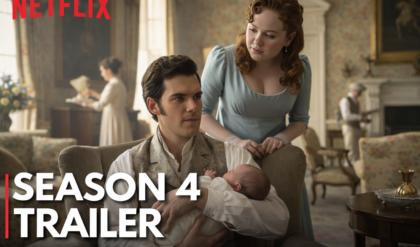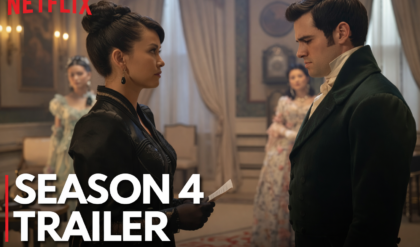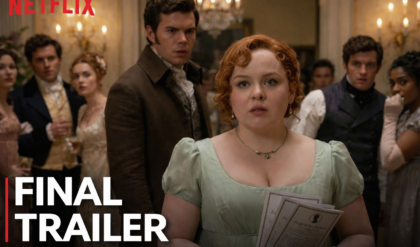When Adolescence dropped on Netflix on March 13, 2025, it didn’t just shatter viewing records with 66 million streams in two weeks—it introduced the world to Owen Cooper, a 15-year-old from Warrington, England, whose debut as Jamie Miller has critics and fans alike hailing him as a “once-in-a-generation talent.” Playing a 13-year-old boy arrested for murdering his classmate Katie Leonard (Emilia Holliday), Cooper delivered a performance so raw, so haunting, that it’s hard to believe he’d never acted before. Shot in grueling single takes, the four-part series—co-created by Stephen Graham and Jack Thorne—demanded a level of authenticity that seasoned actors might buckle under. So how did a football-loving teen with no experience transform into a radicalized killer? Owen Cooper’s intense preparation for Adolescence will give you chills—here’s the jaw-dropping story of how he got into character.

A Blank Slate Steps Into the Spotlight
Owen Cooper wasn’t chasing fame when he stumbled into acting. Born December 5, 2009, to a carer mom and IT dad, he grew up on a Warrington council estate dreaming of Liverpool FC glory, not Hollywood lights. “I wanted to be a footballer,” he told Variety. “I don’t know what made me try acting a couple years ago—I just did.” Inspired by Tom Holland’s raw turn in The Impossible, he joined The Drama Mob, a Manchester drama club, as a hobby. Then came the self-tape request for Adolescence. Casting director Shaheen Baig sifted through thousands of UK teens to find Jamie—a boy teetering between innocence and rage. Cooper’s tape, showing him shift from nervous to defiant, floored her. “I knew that’s him,” Stephen Graham recalled to The Independent, turning to Barantini and Thorne after their first chemistry read.
At 14, with zero credits, Cooper landed the lead in a series tackling knife crime, misogyny, and the manosphere’s grip on boys—13% of UK teens admire Andrew Tate, per BBC. Filming began July 2024 in Liverpool and Sheffield, wrapping four months later. Each episode’s one-shot format—rehearsed for a week, tech-prepped for another, then filmed twice daily over five days—left no room for error. For Cooper, it was sink or swim. “I thought I’d never be able to do this,” he admitted to Variety. But his prep turned that fear into a chilling triumph.
Pushing the Emotional Edge
Jamie Miller isn’t a typical teen role. He’s a quiet kid radicalized online, rejected by Katie, and driven to stab her in a fit of shame and fury. Cooper had to embody that descent—and make it real in unbroken takes. His prep was less about technique and more about raw emotion, often pushed by his co-stars. Take Episode 1’s police raid: guns pointed at Jamie, parents Eddie (Graham) and Manda (Christine Tremarco) screaming. Off-camera, Graham “scruffed me up,” Cooper told Variety. “He said, ‘You’re never gonna see your mum again. You’re never gonna see your dad.’ I couldn’t get emotional before that—but after, I was crying every take.”
That wasn’t a one-off. Before the raid, Cooper begged the actor playing the armed officer to “proper, proper scare me,” he revealed to The Tab. “I wanted the fear to be real.” On set, with rifles in his face, his wide-eyed terror wasn’t acting—it was instinct, honed by a teen unafraid to feel the stakes. Erin Doherty, as psychologist Briony in Episode 3, called his shifts “genuinely scary” (The Independent). From childlike fragility to volcanic anger, Cooper’s prep leaned on co-stars as emotional triggers, not scripts as crutches. “They told me, ‘Don’t think of Owen,’” he said to i-D. “I had to be Jamie.”
Living the One-Shot Nightmare
The one-shot format—Barantini’s signature from Boiling Point—meant Cooper had to memorize hour-long episodes, hit every mark, and stay in character without cuts. “I had two weeks to learn them,” he told Vogue. “I was in my room every day, going mad on that script—highlighting so much you could barely read it.” Unlike trained actors, he didn’t lean on method acting or Stanislavski. “I didn’t know any better!” he laughed to Variety. Instead, he built muscle memory through three-week blocks: rehearsals, tech runs, filming. By take 10 (the goal was two daily for five days), he could “do it in my sleep,” Barantini boasted.
But prep wasn’t just lines—it was mindset. Cooper didn’t craft a detailed backstory—Graham and Thorne left Jamie’s motives ambiguous, a “normal kid” warped by unseen forces (Vogue). “I just put myself in his shoes,” he told Vanity Fair. In Episode 3’s detention center showdown with Doherty, where Jamie hurls a mug of “minging” fake hot chocolate (Netflix Tudum), his prep shone. “It spilt everywhere,” he recalled. “The crew scrambled to clean it so the camera could keep rolling.” That volatility—rehearsed yet real—came from trusting the chaos, a skill Barantini called “cosmic” for a newbie (The Independent).
A Team That Built Him Up
Cooper’s prep wasn’t solo—his cast and crew were his backbone. Graham, who’d discovered raw talents like Thomas Turgoose, saw Cooper as Adolescence’s “biggest achievement” (The Independent). “We wanted someone unpolished,” he said, and they nurtured him. Rehearsals doubled as trust-building—Doherty’s improv (“Am I boring you, Jamie?” after a yawn) kept him sharp (The Standard). “Everyone helped me—Phil, Erin, Ashley, Stephen,” he told Variety. Barantini added, “We gave him confidence to play. He wasn’t scared on set—we made sure he felt welcome.”
That support turned intense moments into breakthroughs. In Episode 1, when Eddie and Manda bang on the police van window—“We’re here!”—Cooper’s tears flowed naturally. “That just got me,” he told Vanity Fair. Graham’s off-script intensity, Doherty’s piercing stares, even Walters’ quiet gravitas as DI Bascombe—they pushed him past “frustration” into a zone where, as Barantini marveled, “actors train years and still can’t do what he did” (Variety). His prep was less about study and more about surrender—to the team, the moment, the fear.
Real-Life Roots, Chilling Results
Cooper’s life mirrored Jamie’s enough to fuel his prep. A working-class kid with a phone full of football clips and Marvel dreams (Daily Mail), he knew the digital pull—though not the manosphere’s poison. The Guardian reports UK knife crime’s doubled in a decade, often tied to online radicalization. Cooper didn’t research incels—he relied on Thorne’s script and Graham’s lived-in pain (inspired by cases like Ava White’s 2021 murder). “I’m the complete opposite of Jamie,” he told Vanity Fair, yet he tapped something universal: a teen’s vulnerability, amplified by isolation.
The chills come from how real it feels. X users like @geeforfreedom raved, “He nailed every switch from helpless kid to intimidating menace.” Critics agree—The Telegraph’s Anita Singh called it “truly remarkable.” That authenticity wasn’t rehearsed in a vacuum—it was forged in a pressure cooker of real-time stakes, co-star prods, and a kid brave enough to bare his soul.
Beyond Adolescence: A Star Rises
Cooper’s prep paid off beyond Adolescence. Mid-filming, he nabbed young Heathcliff in Emerald Fennell’s Wuthering Heights (out 2026) after Graham’s agent saw Episode 1 (Variety). He’s also in BBC’s Film Club with Aimee Lou Wood, set for late 2025. “It’s not one-shot anymore!” he grinned to Variety. “Emerald’s lovely—Jacob and Margot too.” At 15, he’s juggling school, set tutors, and a career rivaling Tom Holland’s—his Spider-Man dream still alive (i-D).
Why does his prep give chills? It’s the audacity—a boy with no training facing a role that’d terrify veterans, diving headfirst into fear, and emerging a star. The Standard says it “may be the best child debut ever.” As Adolescence sparks school talks and knife-crime debates (PM Starmer’s a fan), Cooper’s prep isn’t just a story—it’s a testament to raw talent meeting raw courage. Rewatch Episode 3. Feel the goosebumps. This is how a legend begins.





